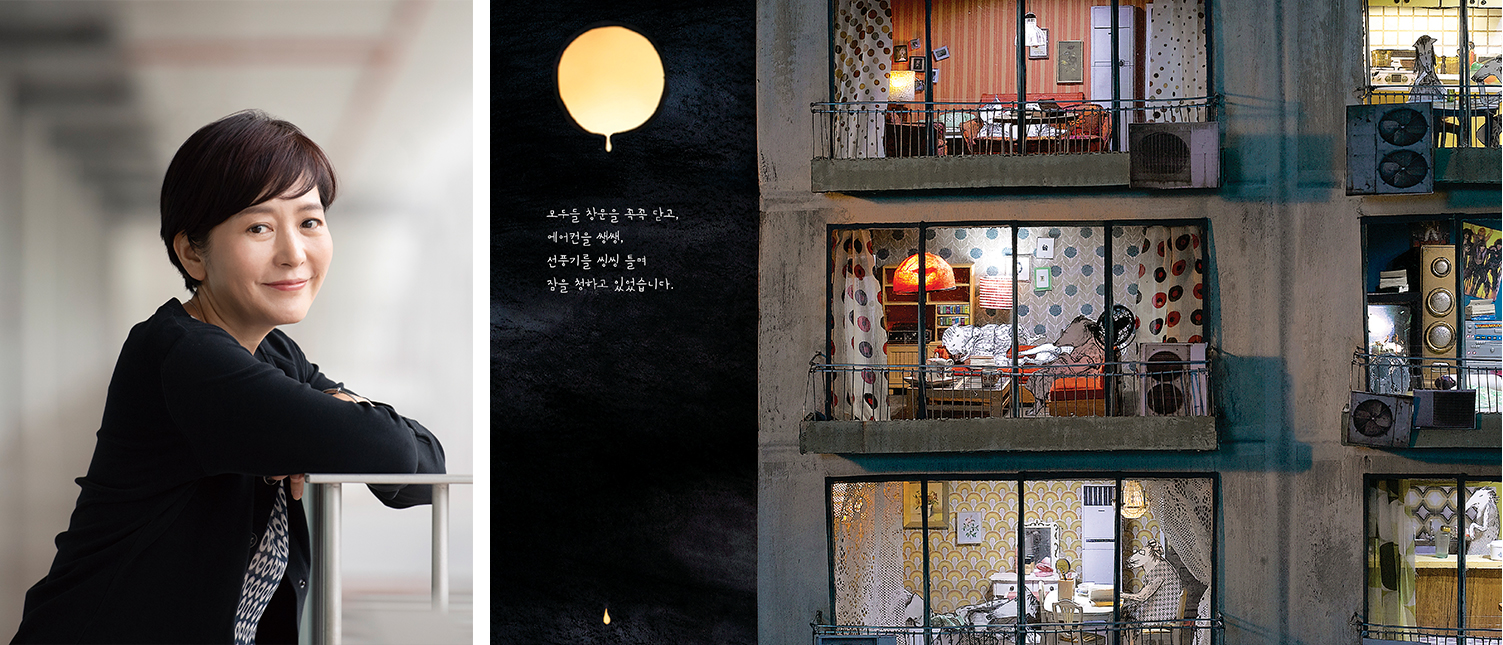Trends
Universal Empathy
Facets of K–Literature
The coronavirus pandemic has reminded humanity of its dependence on and the need for collective coexistence, as well as driving home the importance of overcoming communicative barriers. Because literature is a medium through which people can build empathy despite their inherent differences, the following is a look at Korean literature on the world stage.
Written by• Seo Youngin,
literary critic
Since Han Kang’s novel “The Vegetarian” won the 2016 Man Booker prize, Korean literature has received global accolades and attention. This year, Baek Heena’s “Cloud Bread” won the Astrid Lindgren Memorial Award, the world’s most prestigious honor for children’s literature, and Sohn Won-pyung’s “Almond” also won the Japanese Booksellers’ Award for translated fiction. Poet Kim Hyesoon last year became the first Korean laureate of the Canadian Griffin Poetry Prize for her poetry collection “Autobiography of Death,” and her “A Drink of Red Mirror” was longlisted for the 2020 Best Translated Poetry Book Award of the U.S.
Despite these prestigious accolades, the value of literature cannot be gauged by competition like sports are. Literary honors such as these pale in comparison to the experience literature offers and transmit to readers worldwide. Imagine a non-Korean speaker going through the experience of a Korean novel’s character; the latter neither speaks the reader’s language nor knows much else outside of Korea. Despite obvious differences, the foreign reader wears the shoes of the character, and this beautiful example shows how literature facilitates interpersonal bonds of empathy for all humanity.

Poet Kim Hyesoon in 2019 became the first Korean to win the Griffin Poetry Prize, Canada’s most prestigious award of its kind, for her poetry collection “Autobiography of Death.” © Griffin Poetry Prize
Shared Sentiment
The winner of the Japanese Booksellers’ Award is chosen by vote among staff at Japanese booksellers and merchandisers, and thus reflects reader sentiment in Japan. Among the comments posted for Sohn’s “Almond” included “This work consists of a universal language. Reading it frees you of bias and stereotype. It is indeed powerfully transformative in that way” and “It hits you with the essence of humanity, which is contingent on relations built on empathy.” The Japanese reviews of the novel were quite similar to those of Korean readers, attesting to the universality of the author’s message. The coming-of-age work is told from the perspective of the protagonist Yoon-jae, who is born with the amygdala of his brain being smaller than average. He grows up and befriends someone whom he grows closer to through deliberate effort. Yoon-jae’s maturation journey is a heartfelt reminder of the sincerity required for anyone to relate to another.
Penetrating the Japanese market earlier was “Kim Jiyoung, Born in 1982,” a bona fide hit with Japanese readers. The book sold more than a million copies in its first printing in Korea and more than 150,000 in Japan. In 2019, it rose to eighth on Japan’s bestseller literature list. The novel was a hit in Korea due to the crude reality it depicts, that of a Korean society riddled with discriminatory perceptions of gender and still inept at granting women complete equality. Japan’s warm reception of the novel shows a similarity in gender inequality. A Japanese reader, born in 1982 like the protagonist, said, “I was made aware of how commonly felt my experiences were. Before, I thought only I had these sentiments. The realization that all of us are going through this was reaffirming in a way that validated my own and keenly felt experiences. Contrary to my self-doubt or suspicion, I wasn’t delusional in the way I processed or underwent my experience. It was surreal how validating that felt.” The protagonist has a plain Korean name and lives in Korea, but this has not stopped the book from eliciting genuine empathy from women outside of Korea.

Cho Nam-joo, the author of the bestselling novel “Kim Jiyoung, Born in 1982,” made her literary debut in 2011 with “When You Carefully Hear,” which earned the Munhakdongne Novel Award. © Minumsa / Sohn Won-pyung has written scripts and directed many short films. Her novel “Almond,” which won the Changbi Prize for Young Adult Fiction in 2016, is considered her literary debut. © Cine21, Oh Kye-ohk
Remembering Unjust Deaths
Poet Kim Hyesoon, in the afterword of her collection “Autobiography of Death,” wrote that each of her poems pays tribute to those suffering “unjust deaths that were the aftereffects of contemporary Korean history and its injustices.” Her poems mention people lost to the 2014 Sewol ferry sinking, for which she said the nation has yet to rectify, and the 2015 MERS epidemic. The dead also include others whose demise can be traced to neither a cause nor an event, but to the accrued costs and wrongdoings committed in the name of poverty and discrimination. The collection comprises 49 poems of the poet’s feelings of lamentation, rage and pain. According to Buddhism, 49 is also the number of days a human spirit is said to roam before the cycle of reincarnation ends. Over this period, the living express condolences to the spirit of the departed and pay tribute to their welfare. On the 49th day, a ritual salutes the deceased’s exit. Thus Kim’s 49 poems are akin to ritualized memorials to and prayers for the dead. All societies have deaths that the relevant communities or nations have not accounted for, as well as the subsequent lack of rectification of the victims of unjust deaths. “Autobiography of Death” thus captures the poet’s pain and lamentation over these deaths.
Bigger Global Presence
Korean literature has risen to prominence thanks partly to consistent and improved efforts in translation. While the rise of domestic works is encouraging, the huge potential of Korean literature must be tapped through expanded means of transmission rather than focus on winning global literary awards or recognition.

In 2020, Baek Heena received the Astrid Lindgren Memorial Award, the so-called Nobel Prize of children’s literature. © Bear Books / Baek Heena’s story “Moon Sherbert” tells of a melting moon on a scorching summer day. The work displays both the writer’s brilliant imagination and her concern over global warming. © Bear Books



















